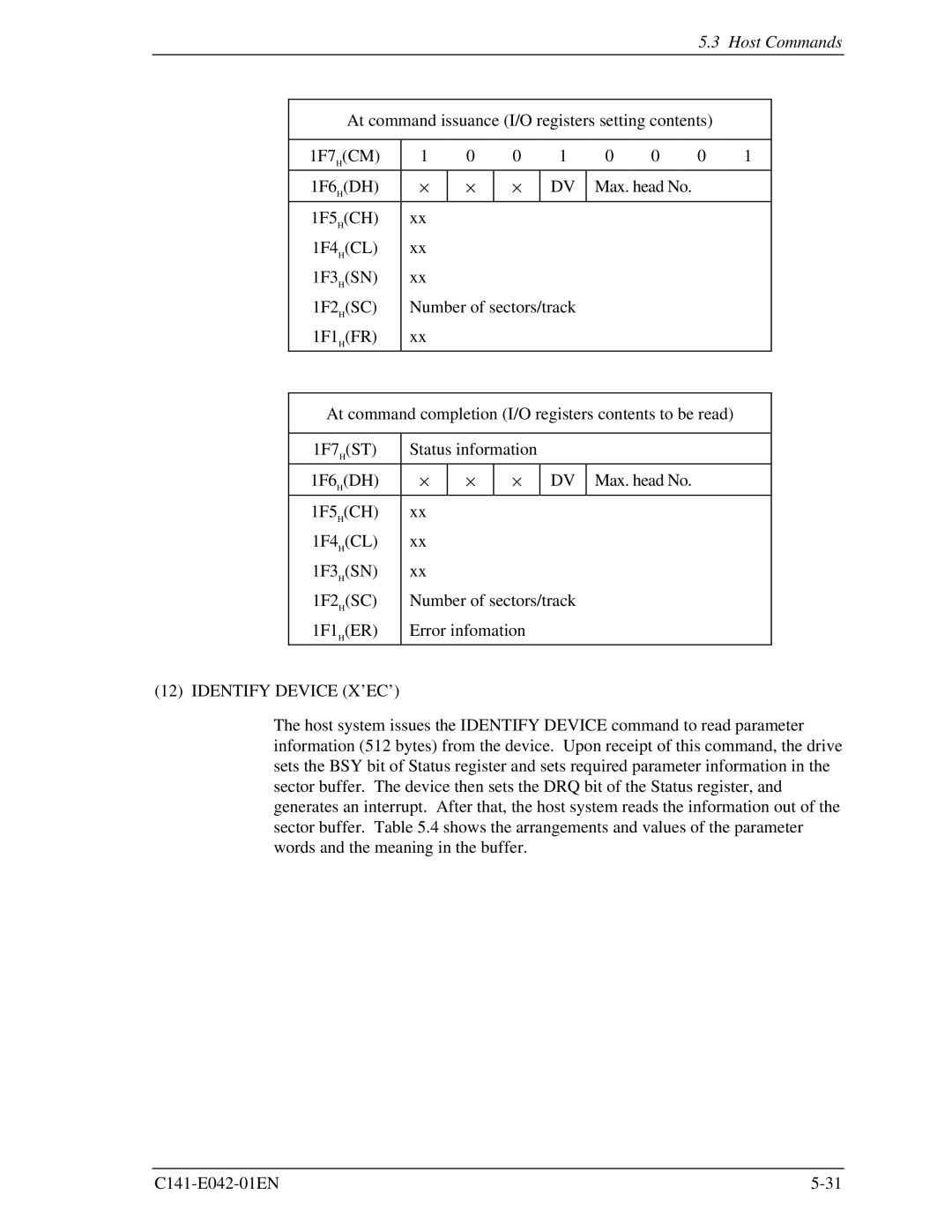
5.3 Host Commands
At command issuance (I/O registers setting contents)
1F7H(CM) | 1 | 0 | 0 | 1 | 0 | 0 | 0 | 1 |
1F6H(DH) | × | × | × | DV | Max. head No. |
|
| |
|
|
|
|
|
|
|
|
|
1F5H(CH) | xx |
|
|
|
|
|
|
|
1F4H(CL) | xx |
|
|
|
|
|
|
|
1F3H(SN) | xx |
|
|
|
|
|
|
|
1F2H(SC) | Number of sectors/track |
|
|
|
| |||
1F1H(FR) | xx |
|
|
|
|
|
|
|
At command completion (I/O registers contents to be read)
1F7H(ST) | Status information |
|
| ||
1F6H(DH) | × | × | × | DV | Max. head No. |
|
|
|
|
|
|
1F5H(CH) | xx |
|
|
|
|
1F4H(CL) | xx |
|
|
|
|
1F3H(SN) | xx |
|
|
|
|
1F2H(SC) | Number of sectors/track | ||||
1F1H(ER) | Error infomation |
|
| ||
(12) IDENTIFY DEVICE (X’EC’)
The host system issues the IDENTIFY DEVICE command to read parameter information (512 bytes) from the device. Upon receipt of this command, the drive sets the BSY bit of Status register and sets required parameter information in the sector buffer. The device then sets the DRQ bit of the Status register, and generates an interrupt. After that, the host system reads the information out of the sector buffer. Table 5.4 shows the arrangements and values of the parameter words and the meaning in the buffer.
